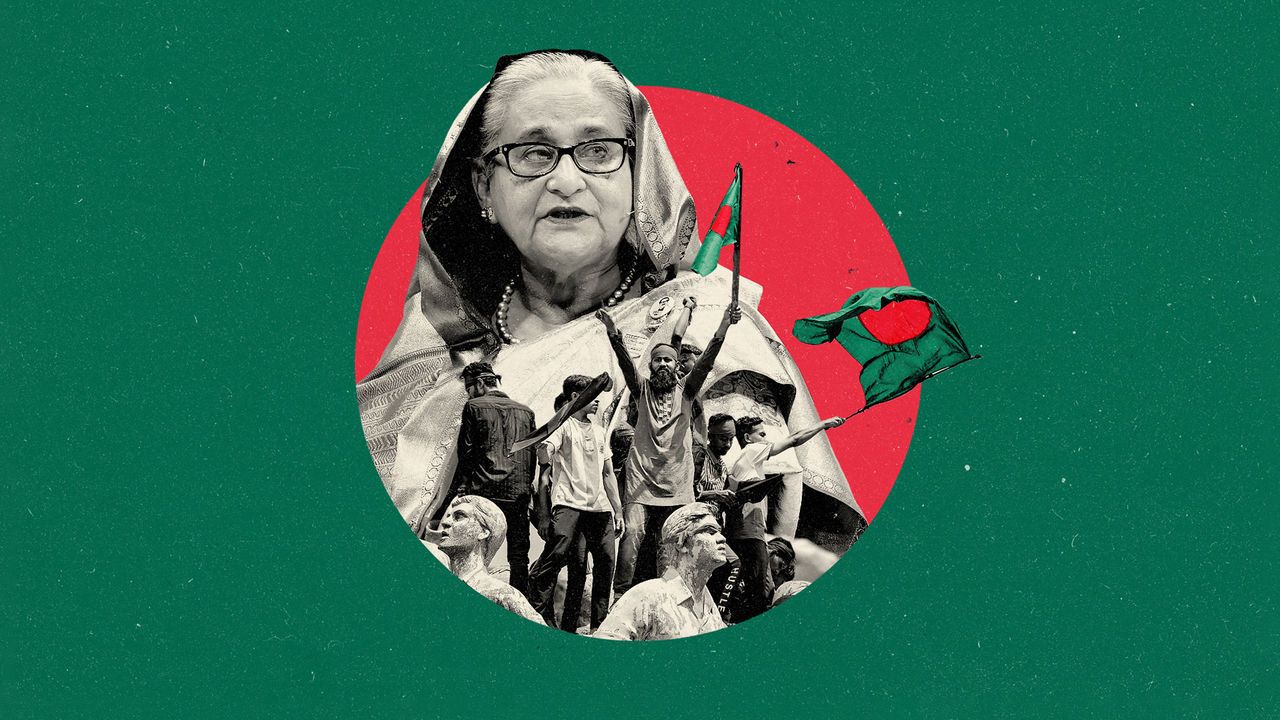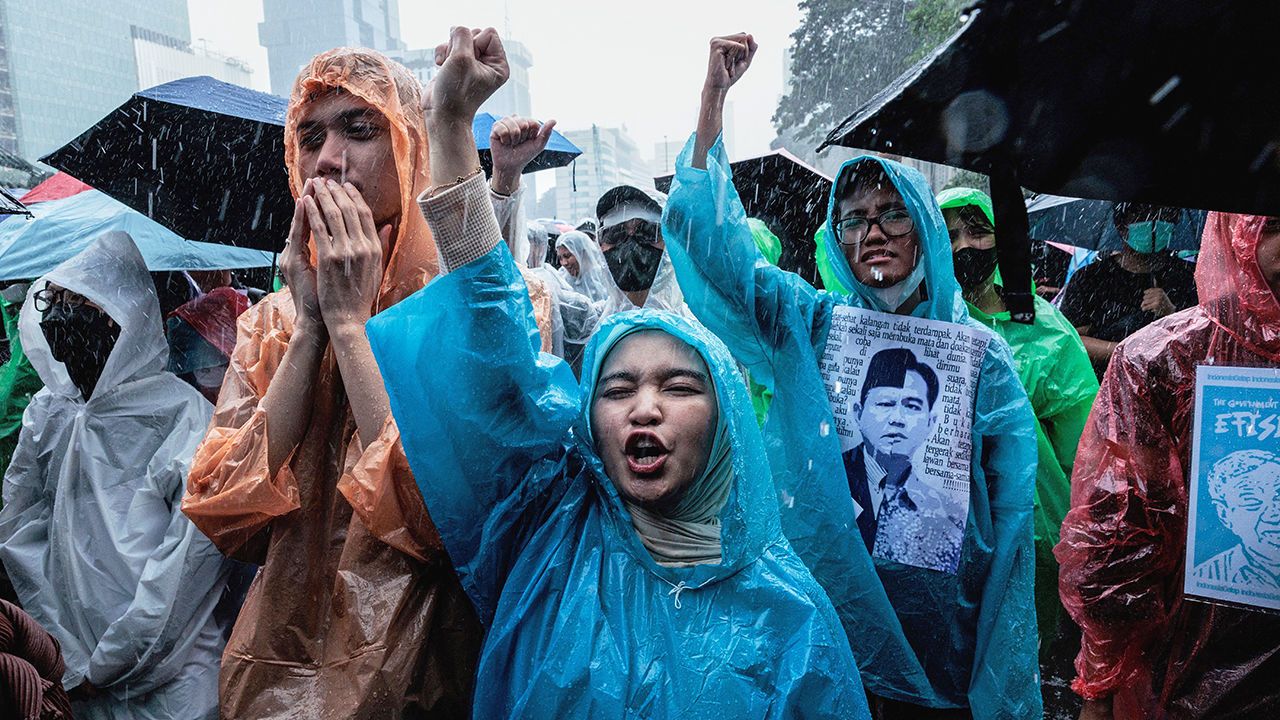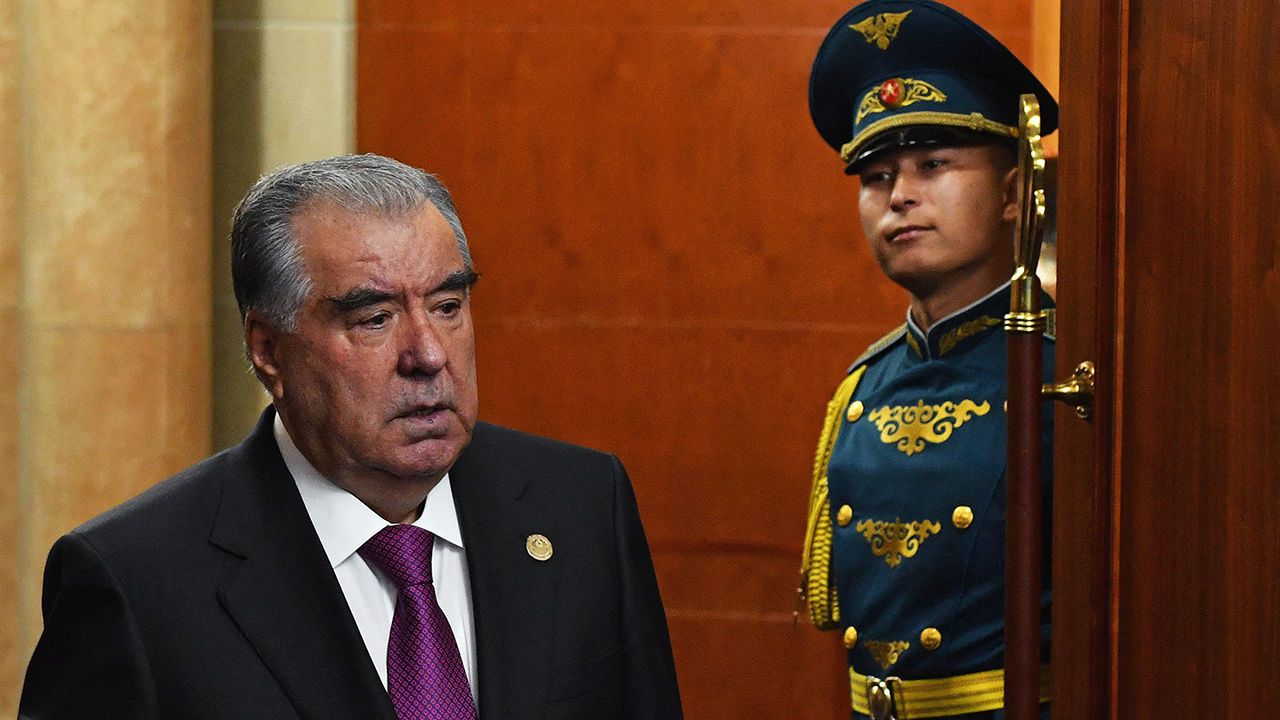Can hope beat hatred in Bangladesh?
Domestic politics and great-power rivalries will make transitioning to democracy hard

ON AUGUST 5th Muhammad Yunus was expecting to stand trial in absentia in Dhaka, Bangladesh’s capital, in a trumped-up corruption case that might have put him in prison for life. Two days later Mr Yunus, a Nobel laureate, economist and social entrepreneur, was appointed the head of Bangladesh’s army-backed interim government. Sheikh Hasina, the prime minister for 20 of the past 28 years, had resigned and fled the country following weeks of student protests, which violent repression by state forces had failed to quash. The streets of Dhaka, previously patrolled by armed soldiers and police, were filled with students directing traffic and cleaning up buildings ransacked by looters, including the parliament. Overnight, years of autocratic rule had been replaced with hope for democratic renewal.
Explore more
This article appeared in the Asia section of the print edition under the headline “A second liberation?”

From the August 10th 2024 edition
Discover stories from this section and more in the list of contents
Explore the edition
Prabowo Subianto is drastically cutting Indonesia’s budget
The cash saved is going into a new fund he controls

The election in Tajikistan is unlikely to be democratic
Instead it will be a way for Emomali Rahmon, the president, to cement his rule

How overt religiosity became cool in India
The Maha Kumbh Mela shows how tradition has become trendy
The trouble with ancient Indians
India is rapidly ageing. It’s in for some surprises
Singapore’s leader of the opposition is convicted of lying
The city-state’s usually dull politics have taken a turn
Only Asia can help America counter China’s shipbuilding prowess
But will Donald Trump let it?








